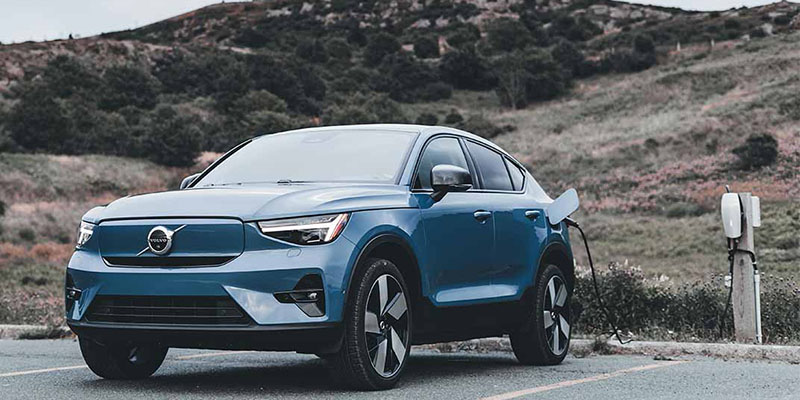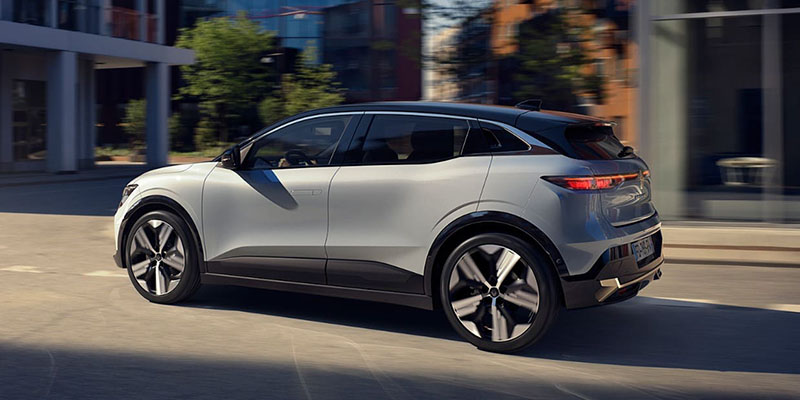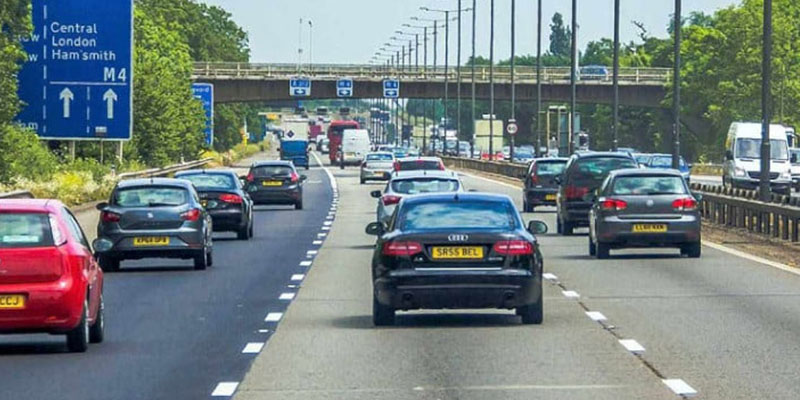UK Car Tax Changes 2025 | Understanding VED Rates

The UK government has announced significant changes to Vehicle Excise Duty (VED), commonly referred to as road tax, which will come into effect on 1st April 2025. For electric vehicle (EV) owners, these changes mark the end of lengthy tax exemptions, and the introduction of additional costs for higher-value vehicles.
Understanding these new road tax rates is important for making informed decisions, especially if you're considering leasing a new EV or managing an existing lease.
- What are VED rates?
- How will VED rates change for electric cars?
- New VED Rates for vehicles registered after 1st April 2025
- How much VED will you have to pay?
- VED rates for double cab pick-ups
- Frequently asked questions
What are Vehicle Excise Duty Rates?

Vehicle Excise Duty (VED), commonly known as 'road tax' or 'car tax,' is a tax that applies to most vehicles driven in the UK. With changes to VED coming in 2025, it's essential for drivers considering vehicle leasing to understand how this tax is calculated.
VED is primarily based on a vehicle’s emissions - the lower the emissions, the lower the tax. This is particularly important for those looking to lease a car, whether for personal or business use, as it can impact the overall cost of running a vehicle.
For those leasing a vehicle, choosing a low-emission car - such as a hybrid or electric model - can help keep costs down. Currently, fully electric vehicles benefit from the lowest tax rate there is, after their tax exemption was removed on the 1st April 2025, as explained in the next section.
VED payments contribute to the UK government’s central fund, which supports a range of public services, including infrastructure and road maintenance. While many assume all road tax goes directly to road improvements, it actually functions similarly to other forms of taxation, funding various government initiatives.
How will VED rates change for electric cars?

From April 2025, all newly registered EVs will no longer benefit from zero road tax. Instead, they will incur a minimal first-year VED rate of £10, aligning with vehicles that emit 1 to 50g/km of CO2. After the first year, the standard rate of £195 annually will apply, although this figure is subject to future adjustments based on inflation.
The government has also removed the exemption from the Expensive Car Supplement, which applies to vehicles with a list price exceeding £40,000. For EVs registered on or after 1st April 2025, owners will need to pay an additional £410 per year for five years, starting from the second year of ownership. This change means EVs with a list price over £40,000 will incur annual road tax costs of £620 from the second year onward.
For instance, an EV costing more than £40,000 and registered after March 31, 2025, will incur the £620 annual charge (from years two to six) mentioned above, whereas vehicles registered before the change were previously exempt. Over five years, this could result in an additional £3,445 in tax costs when considering the additional standard rate EV owners will have to pay.
New VED rates for vehicles registered after 1st April 2025
If you're considering leasing a new vehicle, you can expect to pay the following:
|
CO2 Emissions (g/km) |
First Year Rate |
Standard Rate |
|
Zero |
£10 |
£195 |
|
1 to 50 |
£110 |
£195 |
|
51 to 75 |
£130 |
£195 |
|
76 to 90 |
£270 |
£195 |
|
91 to 100 |
£350 |
£195 |
|
101 to 110 |
£390 |
£195 |
|
111 to 130 |
£440 |
£195 |
|
131 to 150 |
£540 |
£195 |
|
151 to 170 |
£1,360 |
£195 |
|
171 to 190 |
£2,190 |
£195 |
|
191 to 225 |
£3,300 |
£195 |
|
226 to 255 |
£4,680 |
£195 |
|
Over 255 |
£5,490 |
£195 |
How much VED will you have to pay?
If you're looking to register an EV or low-emission vehicle after 1st April 2025, it will be subject to a different VED rate structure than cars registered before that date. You can expect to pay figures similar to the example below, depending on your vehicle's emissions and list price upon registration.
| Vehicle | Gran Coupé 420i M Sport Sport-Auto | BMW i4 Gran Coupé eDrive35 M Sport Auto |
|---|---|---|
| List Price | £45,410 | £52,715 |
| First Year VED Rate | £1,360 | £10 |
| Standard Annual VED Rate (Year 2 onwards) | £195 | £195 |
| Expensive Car Supplement Annual Rate (First 5 years, After Year 1) | £425 | £425 |
| Total VED and ECS Cost over a 4-year Lease* | £3,220 | £51,870 |
*Vehicle Excise Duty (VED) rates and the Expensive Car Supplement (ECS) as shown above are set by the UK Government and are subject to change in future Budgets. We recommend to check the latest government updates on Gov.Uk or check HMRC guidance when looking at vehicle ownership costs.
After that first year, drivers will be required to pay the £190 standard rate.
Double cab pick-up tax changes

Double-cab pick-up tax is also changing in 2025, so business customers who lease double-cab pick-ups will want to familiarise themselves with the new regulations to ensure they're not met with unforeseen cost increases.
Moving forward, double-cab pick-ups will be reclassified as cars rather than commercial vehicles. This means electric or hybrid versions of these vehicles will now be subject to car-related taxes, including the Expensive Car Supplement and Benefit-in-Kind (BIK) tax increases.
This adjustment may impact overall running costs for businesses that rely on pick-ups, making it more important than ever to factor these changes into financial planning.
Frequently Asked Questions
How does this impact Personal Contract and Business Contract Hire?
All our contract hire quotations include the cost of Vehicle Excise Duty (VED) otherwise known as car tax from the start of your agreement. It should be noted that any unforeseen changes to VED rates will be passed on to the customer at the point of annual renewal.
When will car tax change?
The new VED rates are set to take place in April 2025. This change will introduce road tax charges for electric vehicles (EVs), which were previously exempt, and will revise rates for all vehicle categories.
Why are EVs no longer exempt from road tax?
The government aims to make the tax system fairer by aligning EV taxation with traditional vehicles. This change is also part of a broader strategy to balance public finances as EV adoption increases.
How often do I need to pay VED?
VED is typically paid annually, either in full or through monthly instalments. The first-year rate applies at registration, followed by the standard rate for subsequent years.
Will the VED changes affect the leasing process?
Yes, the new road tax costs will need to be factored in to the leasing process. After April 2025, leased EVs will have a government-issued road tax invoice for the increased VED, which must be paid when the first renewal is due.
Find your perfect EV today with Evans Halshaw Leasing
By acting now and purchasing your vehicle before 1st April 2025, you can benefit from lower costs during the first year of your lease and avoid paying the Expensive Car Supplement for the first five years.
At Evans Halshaw Leasing, we’re here to help guide you through these changes and ensure you get the most from your lease. Get in touch with us today to secure your electric car and save.












































































